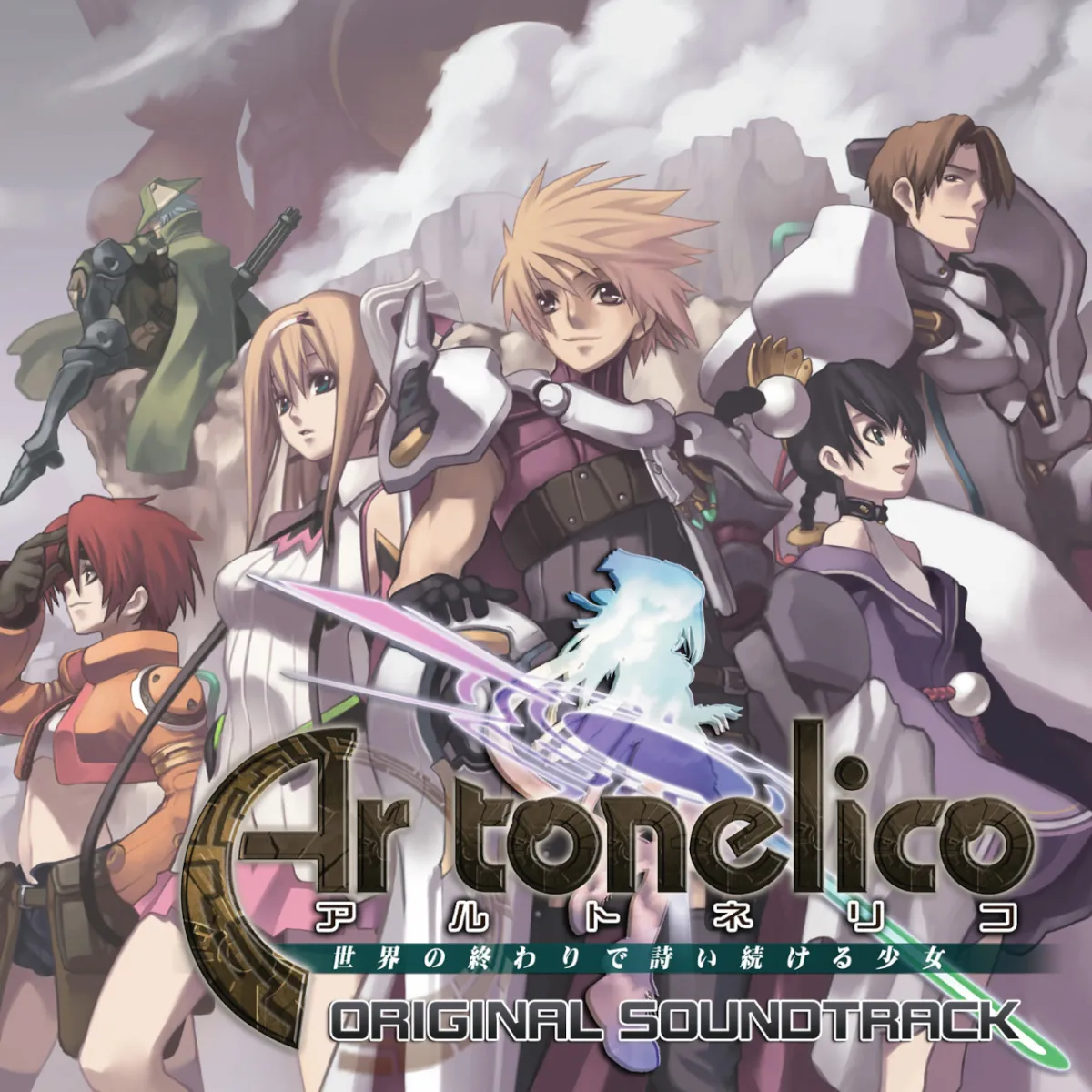Ar tonelico: Sekai no Owari de Utai Tsudzukeru Shoujo (translated as The Girl Who Sings at the End of the World) is the most recent title from Gust and Banpresto, makers of the Atelier series and Super Robot Wars series respectively. So recent is this title, actually, that I am writing this review before the game’s Japanese release. The soundtrack was printed a month before the game, and it has done fairly well in sales. Considering the game puts a major focus on music, both instrumental and the human voice, it is fitting that we find astonishing representation of both on this extraordinary two disc set. What all can you expect to find on this soundtrack?
First, expect a lot of vocals, and expect them to come in the most unexpected places and most eccentric ways. I don’t suppose you’re familiar with the rap breakdown in the DDR hit “Put You’re Faith In Me,” but if you are, you can hear it on track 3 of disc 1, “Audhumla.” That’s right: among Ar tonelico‘s diverse songs you will find English rap samples scattered here and there to add some decoration to an event theme or battle song. “Sleipnir” is another example demonstrating how this style works. This is a bold new step for the Gust Sound Team, and while I’m not sure I totally embrace it, I did enjoy hearing something fresh.
Then again, “fresh” is what Gust is all about. Ever since I first heard music from the Atelier series, it’s how I’ve felt about all of Gust’s projects, specifically from Tsuchiya, Nakagawa and Achiwa. These three have created a force to be reckoned with in the VGM community. When I hear their songs, I get the same feeling one gets when walking into the fresh air and sunlight after being locked away in a dark room for days (many of us know what that feels like, eh, otaku?). This feeling comes particularly from the kinds of instruments used and the way they are used. For an example of this, listen to the opening vocal track “Expressive Hill” or “Green Lands.” Both send happy-outdoor-shivers down my spine, even when sitting in front of a computer!
Along with a few other lyrical vocal tracks, there are plenty of songs that feature little non-sensical chants or simple “ooh” “aah” sort of vocal work. If you’re looking for even more avant-garde use of female vocals, a number of songs feature a girl whispering “A R T-O-N E-L-I-C O” mixed into the background. It’s kind of creepy, but it’s also rather clever.
Some other beautiful vocal tracks are found near the end of disc two: Voice of Life, Phantasmagoria, Lost Performance. All of these songs are brilliant in their own right. The three female vocalists from the game (Akiko Shikata, Haruka Shimotsuki, and Noriko Mitose, the latter of which sang the ending vocal song for Chrono Cross) are all exceptional artists, each with a distinct voice.
However, even with the sheer volume of songs with voice, the majority are still instrumental-synth songs, and one cannot help but remember that this is a soundtrack for a videogame. How does the score compare to previous Gust works, or to other works during the late-PS2 era of VGM? In comparison to previous work, it sounds outstanding. But, compared to the vocal tracks, the instrumental tracks do feel a bit out of place. Impressive battle themes such as “Loki” are every bit as good as “Deceitful Wings” from Atelier Iris, but something seems to clash with this sound and the sound of, say, “Expressive Hill.”
If we overlook this one problem (one that may only exist in my own mind), then I have to say that instrumental work is nothing less than Gust Sound Team’s greatest achievement to date. Battle themes are techno-rockin’, town/dungeon music is eerie-ambient, and nearly every song has a touch of piano and strings to bring about a sense that there is something delicate and organic behind all the noise.
I want everyone to hear this soundtrack in its entirety. To do that (legally), you’ll either have to pray for an American game release, or import this soundtrack. I suggest the latter, just to be on the safe side.
If you were hoping to hear even more vocal tracks than you wanted to find on this OST, they may be found on the Hymmnos Concert albums, released January 25, 2006. While I am inclined to recommend this two disc OST over any vocal album, you may find yourself desiring those albums more. Or, maybe you don’t like Gust’s music at all. Regardless of your personal tastes, I’m declaring this album the pinnacle of GST’s work and cannot fathom Gust outdoing themselves for at least another year or two.




